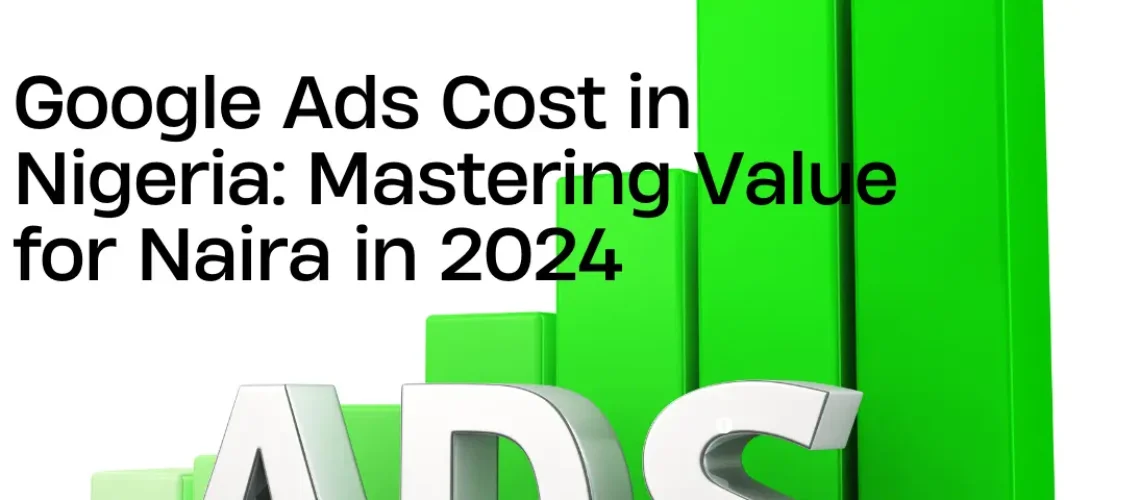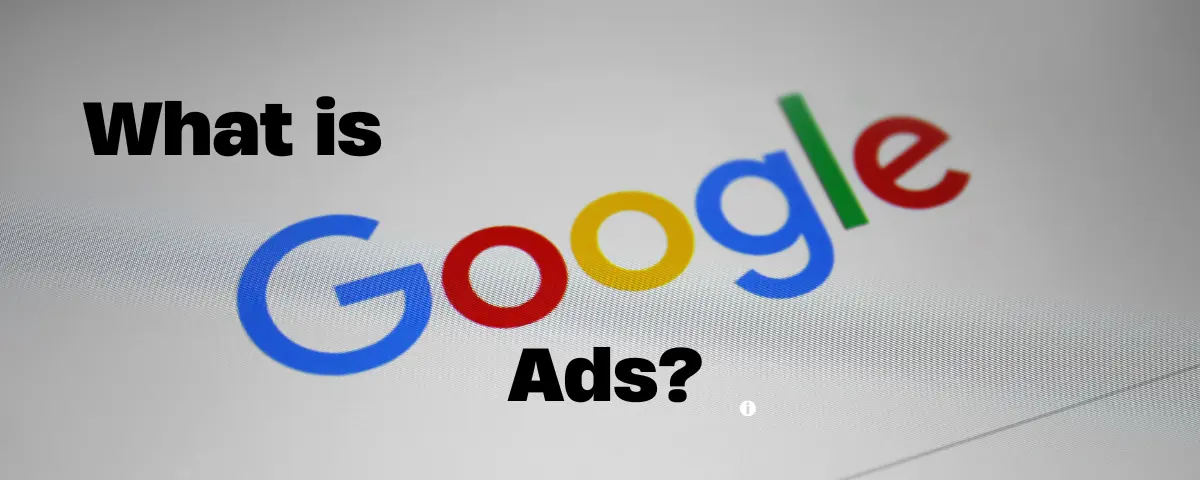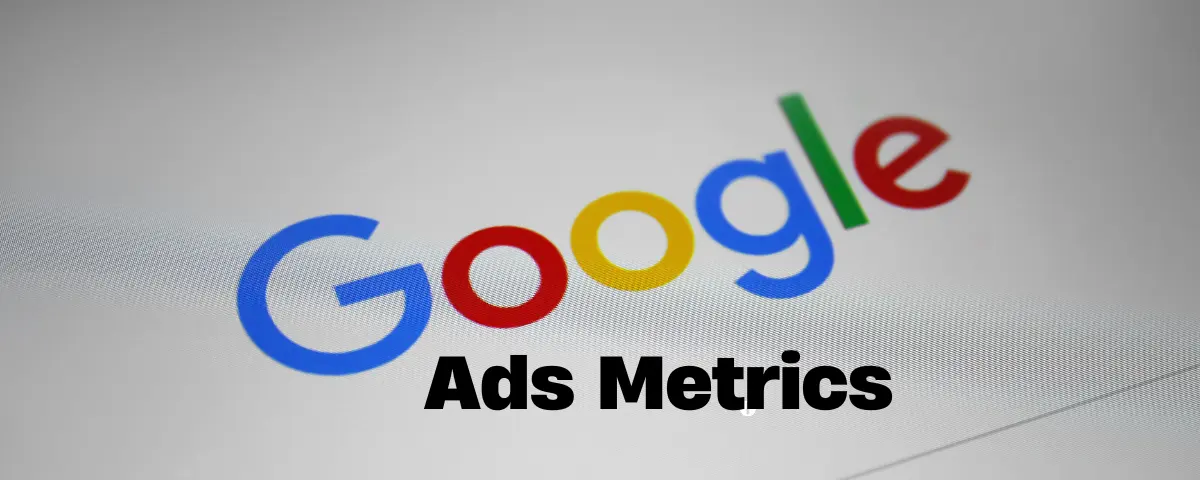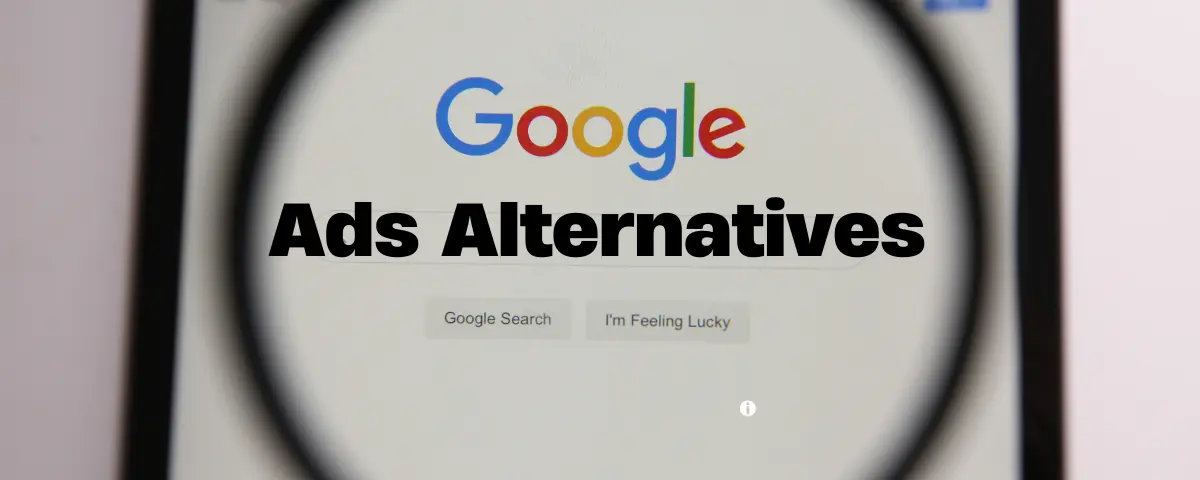Understanding Google Ads cost in Nigeria has become crucial to ensure marketing efforts translate into tangible results. Google Ads, the most popular search engine worldwide, offers a powerful advertising platform that reaches millions of people daily.
Whether you are a small local business or a large corporation, Google Ads can deliver targeted and effective marketing campaigns that drive results. However, the cost of Google Ads in Nigeria is influenced by various factors that we will explore in detail.
By having a clear understanding of how Google Ads costs work, you can make informed decisions and optimize your advertising strategy to get the best return on investment.
What is Google Ads?
Google Ads (formerly known as Google Adwords) is an online advertising platform offered by Google. It allows businesses of all sizes, including those in Nigeria, to display targeted ads across Google’s vast network, especially the Search Network and the Display Network which includes millions of websites and apps.
What this means is that when Nigerians conduct searches on Google or browse partner websites, your strategically placed ads can appear before their eyes, capturing their attention and potentially converting them into customers.
This targeted approach is different from traditional advertising methods, thereby offering Nigerians a cost-effective way to reach their ideal audience at the precise moment they’re actively seeking information or products related to your offerings.
Google Ads operates on a pay-per-click (PPC) model. This means you only pay when someone clicks on your ad, putting the control directly in your hands and allowing you to optimize your budget for maximum impact.
Remember, understanding the fundamentals of Google Ads in Nigeria empowers you to navigate its cost structure effectively.
Google Ads Cost Structure
It is important to understand that knowing the naira implications for running Google Ads in Nigeria is the key to its success.
Here are the key factors influencing Google Ads cost in Nigeria:
1. Cost-per-Click (CPC):
This is the bedrock of Google Ads. You pay a specific amount every time someone clicks on your ad. The CPC varies depending on several factors:
- Keyword competitiveness: Highly competitive keywords with many advertisers bidding on them can increase the CPC.
- Ad quality: Google rewards relevant and well-crafted ads with lower CPCs.
- Targeting: Precise targeting to your ideal audience can lead to more qualified clicks and, potentially, lower CPCs.
- Device and location: CPCs can differ based on whether users are clicking on your ad from their mobiles or desktops and their geographical location within Nigeria.
2. Campaign Type:
Different campaign types within Google Ads (Search, Display, Shopping, etc.) have varying average CPCs. Researching average costs for your chosen campaign type can help you set realistic expectations.
3. Budget and Bidding Strategies:
You control your overall budget and can set bidding strategies to optimize how your budget is spent. Automated bidding strategies like Target CPA or Maximize Conversions can help you achieve specific goals within your defined budget.
4. Currency Fluctuations:
Google Ads operates in USD. Exchange rate fluctuations can impact your actual cost per click. Staying informed about currency movements is crucial for accurate budgeting.
Understanding these factors empowers you to make informed decisions and optimize your Google Ads cost in Nigeria. The ultimate goal is not just minimizing costs, but maximizing the value for your naira.
By crafting targeted campaigns, utilizing effective bidding strategies, and continuously monitoring performance, you can ensure your online advertising efforts deliver a positive return on investment, propelling your business forward in the dynamic Nigerian digital landscape.
Google Ad Metrics to Consider for Nigeria
To truly master value for your naira, you need to dig into the world of metrics. These crucial data points offer insights into your campaign’s performance, revealing what’s working well and where to optimize for better results.
But which metrics truly matter? Here are the key players in the Nigerian context:
1. Impressions vs Clicks:
Impressions tell you how many times your ad was shown, while clicks reveal how many people engaged with it. Ideally, you want a healthy balance, indicating your ad is visible but not generating irrelevant clicks that drain your budget.
Take the case of Justina, a Lagos-based fashion designer, who was initially excited about her high impression count. However, her click-through rate (CTR) was low.
Analyzing keywords revealed she was targeting generic terms with high competition. By refining her keywords to long-tail phrases specific to her niche, Justina achieved a lower impression count but a significantly higher CTR, attracting more qualified leads and maximizing her naira investment.
2. Conversion Rate:
This metric reveals the percentage of clicks that convert into desired actions, such as website visits, purchases, or lead generation. A high conversion rate signifies your ad is effectively reaching the right audience and prompting them to take action.
To better understand this metric let’s use Jide, a tech startup owner in Abuja to explain. He initially struggled with low conversions. He discovered his landing page wasn’t mobile-friendly, deterring users on their smartphones, a dominant demographic in Nigeria.
Optimizing his landing page for mobile responsiveness significantly boosted his conversion rate, translating clicks into valuable leads and driving business growth.
3. Cost-per-Acquisition (CPA):
This metric reveals the average naira cost of acquiring a new customer or lead. It helps you assess the efficiency of your ad spend and identify areas for cost optimization.
For example, Ada who runs a bakery in Enugu, initially had a high CPA. Analyzing her campaign data revealed irrelevant clicks from outside her target region.
By implementing location targeting, Ada achieved a lower CPA, focusing her budget on attracting customers within her delivery range and maximizing her return on investment.
4. Return on Ad Spend (ROAS):
This metric, expressed as a percentage, reveals the revenue generated for every naira spent on your ads. It’s the ultimate measure of campaign success, showcasing the true value you’re extracting from your Google Ads investment.
Let’s share the success story of Ahmed with his Google Ads experience.
He is a furniture manufacturer in Kano who initially struggled to justify his Google Ads spend. Implementing conversion tracking and analyzing ROAS revealed highly profitable product categories.
By focusing his ad budget on these categories, Ahmed achieved a significant increase in ROAS, demonstrating the clear value Google Ads brought to his business.
Furthermore, you need to track and analyze these key indicators in the context of the Nigerian market so you can gain valuable insights, optimize your campaigns, and ensure your Google Ads efforts deliver maximum value for your naira, propelling your business towards sustainable success in the ever-evolving digital landscape.
Factors That Affect the Cost of Google Ads in Nigeria

Understanding Google Ads cost in Nigeria goes beyond mere numbers. It’s about navigating a dynamic landscape influenced by various factors. By explaining these influences, you can optimize your campaigns and get value for your naira.
1. Keyword Competition:
Imagine two Nigerian businesses selling laptops. One targets “laptop,” a highly competitive term. The other targets “affordable gaming laptops in Lagos.” The latter, with less competition, will likely have a lower Cost-per-Click (CPC).
Emeka, an electronics retailer in Port Harcourt, initially used broad keywords like “electronics.” His CPCs were high, straining his budget.
But by employing long-tail keywords like “buy washing machines on installment in Port Harcourt,” Emeka achieved lower CPCs, attracted more relevant users, and boosted his sales within his budget.
2. Ad Quality Score:
Google rewards relevant and well-crafted ads with a higher Quality Score, translating to lower CPCs. This score considers factors like keyword relevance, ad copy quality, and landing page experience.
Let’s use Safia, a fashion boutique owner in Abuja to explain this concept of quality score. She initially wrote generic ads with low relevance to her target audience.
Her Quality Score suffered, leading to high CPCs. By crafting compelling ads highlighting unique selling points and aligning them with relevant keywords, Safia improved her Quality Score, reducing her CPCs and attracting more qualified customers.
3. Targeting Precision:
Narrowing your target audience to specific demographics, locations, and interests can attract more relevant clicks, potentially lowering your CPC. However, overly restrictive targeting can limit reach so you need to find the right balance.
A prime example to explain this factor is Lanre, a travel agency owner in Lagos who initially targeted all of Nigeria in his Google Ad for his business.
His ads reached many uninterested users, driving up his CPCs. But when he focused on specific demographics and locations interested in luxury travel, Uche achieved a lower CPC, attracted qualified leads, and maximized his return on investment.
4. Device and Timing:
Mobile dominates in Nigeria. Ads appearing on mobile devices often have lower CPCs than those on desktops. Additionally, certain times of day or days of the week might show higher engagement and lower costs.
Oye is a fitness instructor in Ibadan and he ran ads throughout the day. His CPCs were inconsistent.
But by analyzing data and scheduling his ads for peak workout hours, Oye achieved lower CPCs, reaching a more engaged audience, and maximizing his ad spend during key conversion periods.
5. Campaign Type and Bidding Strategy:
Different campaign types (Search, Display, Shopping) have varying average CPCs. Choosing the right type and employing suitable bidding strategies can significantly impact your costs.
Remember, these factors intertwine. Experimenting and analyzing data is crucial to understanding what works best for your specific business and target audience in the Nigerian context.
By carefully considering these influences, you can craft Google Ads campaigns that deliver maximum value for your naira.
How to Calculate the Cost of Google Ads in Nigeria

Though calculating the cost of Google Ads looks hard and complex, it boils down to a simple formula: Cost = Clicks x CPC (Cost-per-Click). However, understanding this equation within the Nigerian context requires some additional insights.
1. Estimating CPC:
Predicting your exact CPC can be tricky, as it fluctuates based on various factors previously discussed (keyword competition, ad quality, etc.).
However, you can leverage tools like the Google Keyword Planner to estimate average CPCs for your target keywords and industry. Utilize case studies and industry reports to gain further insights into typical CPC ranges for your specific niche in the Nigerian market.
For example, Bola, a beauty product retailer in Ibadan, used the Google Keyword Planner to research CPCs for her target keywords. Combining this with industry reports, she estimated an average CPC of ₦500.
With a monthly budget of ₦100,000, Bola calculated she could expect roughly 200 clicks (100,000 / 500).
2. Factoring in Budget & Bidding Strategies:
You can control your budget and set bidding strategies to optimize how it’s spent. Automated bidding options like Target CPA or Maximize Conversions can help you achieve specific goals within your defined budget. However, understanding how these strategies function is crucial for accurate cost estimations.
3. Accounting for Currency Fluctuations in Google Ads:
As Google Ads operates in USD, currency fluctuations can impact your actual cost per click. Staying informed about exchange rates and factoring them into your calculations is essential for precise budgeting.
Furthermore, calculating Google Ads cost in Nigeria is an ongoing process. You need to continuously monitor your campaigns, analyze performance data, and adapt your strategies based on what you learn.
Tips for Reducing Google Ads Cost in Nigeria
In the fast-paced Nigerian digital landscape, every naira spent on Google Ads needs to deliver maximum impact. The secret lies in reducing unnecessary costs and maximizing the value you extract from each click.
Here are some tips to achieve naira efficiency in your Google Ads campaigns:
1. Keyword Magic:
Refine your keywords:
Go beyond broad terms and embrace long-tail keywords with lower competition and potentially lower CPCs. Utilize tools like the Google Keyword Planner and competitor analysis to identify profitable keywords that align with your budget and target audience.
Negative Keyword Mastery:
Prevent ad impressions for irrelevant searches by strategically utilizing negative keywords. This ensures your ads reach truly interested users, minimizing wasted clicks and optimizing your budget.
Mfon, a car rental company in Uyo, initially targeted “car rentals.” His CPCs were high. By incorporating long-tail keywords like “affordable airport car rentals in Uyo” and excluding irrelevant terms like “toy cars,” Mfon achieved lower CPCs, attracted qualified leads, and maximized his return on investment.
2. Craft Compelling Ads:
Ad Relevance:
Write ad copy that resonates with your target audience and directly addresses their search intent. Highlight unique selling points and ensure your ad copy aligns seamlessly with your landing page content to create a smooth user experience.
Use A/B testing:
You need to experiment with different ad variations, headlines, and descriptions to identify the most effective combinations that resonate with your audience and drive clicks at a lower cost.
3. Landing Page Optimization:
You must ensure your landing page delivers on the promise of your ad. Offer a clear value proposition, optimize for mobile responsiveness, and guide users seamlessly toward desired actions (conversions).
The loading time of your landing page must not be slow, it can kill conversions. Regularly monitor and optimize your landing page speed to deliver a fast and seamless user experience that encourages conversions and reduces ad spend waste.
4. Leverage Automation:
You can utilize automated bidding strategies like Target CPA or Maximize Conversions to set budget constraints and achieve specific goals within your defined budget. These strategies can help you optimize bids in real time, ensuring you pay the minimum necessary to achieve your desired outcomes.
Google Ads Alternatives
Though Google Ads holds a dominant position in the Nigerian digital marketing space, it’s not the only option. There are alternative advertising avenues to be explored and used.
Let’s dive some of the other promising options available:
1. Local Ad Networks:
Some platforms like Vconnect, offer ad placements on various websites and apps, often with naira-denominated pricing, potentially aligning better with local budgets.
Some platforms boast strong user bases within specific regions or demographics, allowing for targeted advertising within Nigeria.
2. Social Media Advertising:
Platforms like Facebook, Instagram, and Twitter boast millions of active Nigerian users, offering avenues to connect with diverse audiences based on interests and demographics.
3. Influencer Marketing:
You can partner with Nigerian influencers who resonate with your target audience to tap into their established trust and engagement, potentially driving genuine interest and conversions.
4. Content Marketing:
Create valuable content (blog posts, infographics, videos) relevant to your audience’s needs and interests. Share it strategically on social media, forums, and your website to organically attract potential customers.
While you may not experience instant results, consistent content marketing builds trust and brand awareness, leading to sustainable growth in the long run.
5. Offline Advertising:
You shouldn’t write off traditional options like radio, television, or print advertising in your marketing plan. When integrated strategically with your online efforts, they can amplify your message and reach wider audiences.
You can also consider sponsoring local events or community initiatives aligned with your brand values to build engagement and brand recognition.
FAQs
Can you run Google Ads in Nigeria?
Yes! Google Ads operates extensively in Nigeria, offering businesses of all sizes the opportunity to reach millions of potential customers across the Search Network, Display Network, and other platforms. But you will need an international credit card denominated in USD for Google Ads payments.
How Much Does Google Ads Cost in Nigeria?
Unfortunately, there’s no one-size-fits-all answer. The cost of Google Ads in Nigeria depends on several factors; ad quality, keywords, campaign type, bidding strategy, targeting, device, and timing.
Do I need to own a business to use Google Ads in Nigeria?
Though Google Ads primarily caters to businesses looking to promote their products or services, individuals with specific goals can also leverage this powerful platform. Regardless of your purpose, ensure your ads comply with Google’s Advertising Policies and Terms of Service.
More Resources
Google AdSense for Beginners: How to Make Money from Blogging
How I Used Affiliate Marketing To Make Money
Top strategies to sell advertising space on a low- traffic websites in Nigeria
5 Common Google AdWords Mistakes To Avoid That Might Cost Your Business





